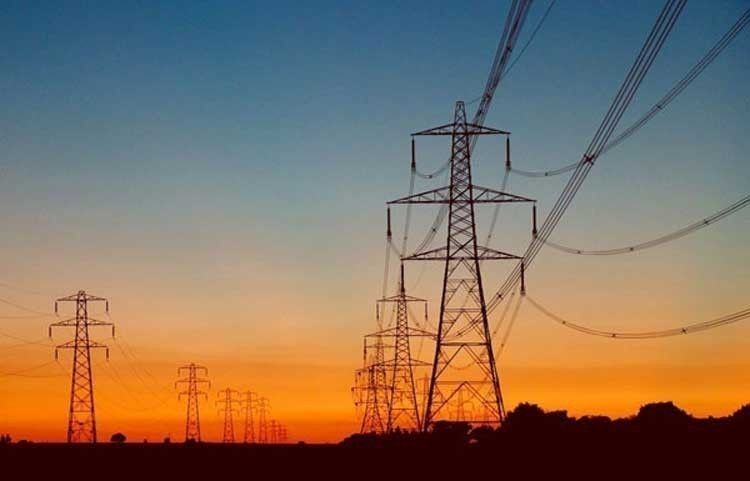NGCP: Foreigners don’t control grid operations

MANILA, Philippines — The National Grid Corp. of the Philippines (NGCP) has refuted allegations that the country’s power grid is vulnerable on the mere account of foreign participation in the firm and insisted that only the Energy Regulatory Commission (ERC) can audit its system operations.
“There is simply no truth to this accusation. NGCP no longer employs foreigners in any capacity. All control centers, substations and command centers are operated and manned by Filipinos,” the power transmission operator said.
“There is no danger of any foreigner directly controlling, or interfering with, the operations of the grid,” it added.
The State Grid Corp. of China (SGCC) has a 40 percent stake in NGCP, while the 60 percent is held by companies led by Filipino business tycoons Henry Sy and Robert Coyiuto Jr.
The NGCP said that various measures to ensure that the transmission system is protected from unauthorized remote access have also been implemented.
The company stressed that it maintains a separate network called the Supervisory Control and Data Acquisition (SCADA) system for all operations and transmission-related work.
The SCADA is a stand-alone system connected only to a private network and is not connected to the internet or to NGCP’s other network, it said.
“This, along with other security protocols, makes unsupervised direct remote access impossible. It also prevents cybersecurity incidents, such as viruses, malwares or cyber threats, from occurring in the SCADA system,” the NGCP said.
It also said that there is a corporate network for its non-transmission or non-operations related work, which is completely separate from the SCADA system.
“NGCP assures the public that the security of the grid is, and will always be, of paramount importance to the company,” the company said. “NGCP will continue to do all that it can to protect the transmission system from all threats.”
Also, the NGCP denied allegations that it is opposed to a proper inspection or audit of the grid or its system operations.
The company said it recognizes the right of the Power Sector Assets and Liabilities Management Corp. (PSALM) as well as of the National Transmission Corp. (TransCo) “to inspect the transmission assets and witness any aspect of the performance of the concession agreement.”
It also acknowledged PSALM’s right to “audit NGCP’s compliance and performance with its obligations under the agreement and other transaction documents.”
The NGCP said TransCo has in fact conducted periodic physical inspections of substations and transmission assets, as well as regular examinations of the company’s books and financial records.
“But the audit of the system operations, which the Department of Energy (DOE), TransCo and PSALM wished to conduct, may only be conducted by the Energy Regulatory Commission (ERC), because it is an exercise of regulatory authority over NGCP,” the company said.
Citing section 2.01 of the concession agreement, NGCP said “neither PSALM nor Transco has any regulatory rights, for any act or inaction of the concessionaire that are within the regulatory authority of the ERC, to make its own determination, or impose any penalties.”
The NGCP likewise said that the exercise of such authority is beyond the powers of the DOE.
It cited Section 37 of the Electric Power Industry Reform Act of 2001 (EPIRA), which expressly carved out the authority to “regulate private sector activities” from the DOE’s functions under the Department of Energy Act of 1992.
According to NGCP, such power was transferred to, and must now be exercised by, the ERC, in conjunction with the commission’s authority to promulgate and enforce the Philippine Grid Code.
“NGCP reiterates that it will participate in a system audit to be undertaken by the ERC, in accordance with the letter and the spirit of the EPIRA,” the company said.
As to the delays in the completion of certain projects, NGCP said these could not be avoided due to the pandemic despite its best efforts.
Even when restrictions were eased, NGCP said it could not fully resume work on the projects because of health and safety protocols.
It also cited other factors in the delays, such as disruptions in the supply chain, which affected the manufacturing and delivery of parts and equipment, as well as issues relating to rights of way.
Nonetheless, NGCP said it expects to complete projects such as the Hermosa-San Jose 500-kilovolt (kV) transmission line and the Cebu-Negros-Panay Stage 3 backbone this year.
“NGCP asks for the patience of the public as it strives to accelerate the completion of its project,” it said.
The DOE is targeting to commence soon with the comprehensive review on the performance of NGCP.
“We will be issuing the necessary orders to commence those,” Energy Secretary Raphael Lotilla earlier said.
“We’re just actually waiting for all the audit reports to be in and accepted by the ERC because that can form the basis for our full or comprehensive review. So I’m sure all parties, all stakeholders will cooperate in the effort,” he said. — Cecille Suerte Felipe
- Latest
- Trending
































